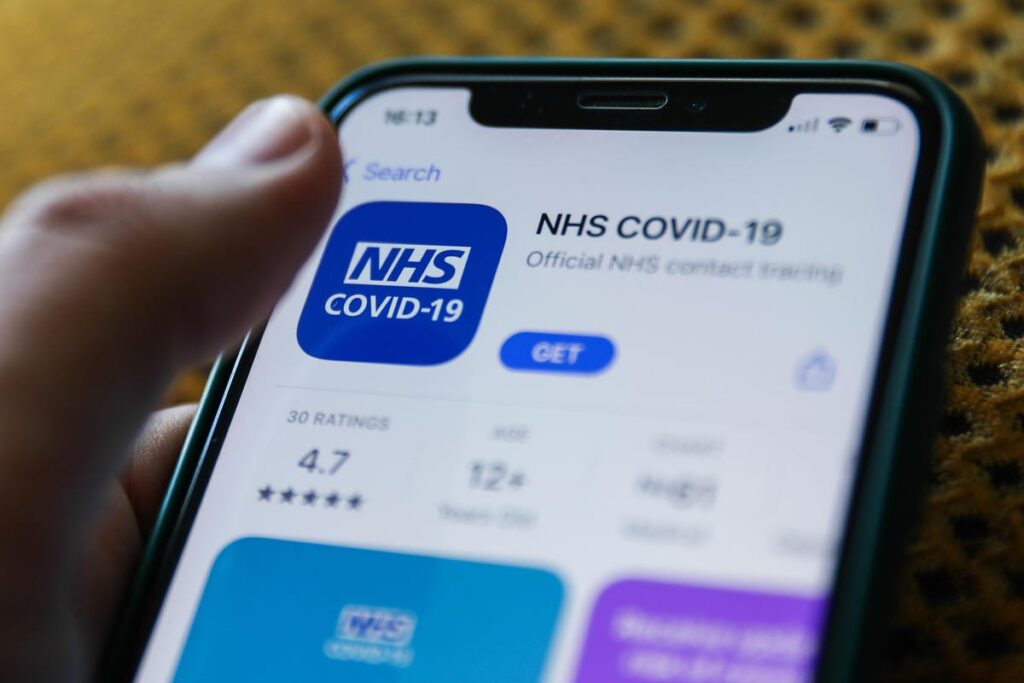NHS COVID-19 on the App Store is seen displayed on a phone screen in this illustration photo taken … [+]
Back in September 2020, the British government launched an app that would impact the lives of millions in England and Wales.
The National Health Service (NHS)-branded Covid-19 app would tell members of the public to self-isolate if they’d been in close contact with someone who went on to test positive for the virus.
It was also used to ‘check in’ at locations like bars and restaurants, and stored information about test results and vaccinations.
Its use fell as restrictions like needing to register attendance at events, or display vaccination status for flights, were dropped. And on Thursday, more than a year after England’s last legal restrictions ended, the app will finally close down.
In February 2022, the requirement to self-isolate after a positive test was stopped in the country.
Although it’s been downloaded some 31 million times in total, only around 100,000 of those took place in 2023. Users who need to share their vaccination status can to do so via the more general NHS App, which also contains non-Covid medical information.
The app, which was developed in collaboration with Apple and Google after an earlier version ran into technical hurdles, cost tens of millions of pounds to deploy. This has prompted criticism from some members of parliament, including Liberal Democrat Layla Moran.
The opposition lawmaker, who chairs the government’s cross-party parliamentary group on Covid, told The Guardian last month: “Considering the government’s chaotic, ineffective and eye-wateringly expensive track and trace app, it is essential that lessons are learned and that an effective app can be operational at a moment’s notice if necessary.
“It is the responsibility of this government and those that follow to ensure that pandemic preparedness is never again treated as an afterthought.”
Despite falling use and initial technical problems, others consider the dedicated Covid app to have been a success.
Research published in February suggested the app prevented about a million cases of Covid-19, 44,000 hospitalisations and 9,600 deaths during its first year of use.
Scientists wrote inthe journal Nature Communications: “The NHS Covid-19 app experienced high user engagement, identified infectious contacts well, and helped to avert appreciable numbers of cases, hospitalisations and deaths.”
Although things like user uptake could be improved, the authors said the app showed that digital contact tracing — “a relatively low cost and rapidly available intervention” — was “a valuable public health measure for reducing transmission” of diseases like Covid.
Coventry University researchers Evronia Azer, Carlos Ferriera and Maureen Meadows, who presented research on users’ experience of the app st a conference back in September last year, say officials should listen closely to public concerns about privacy and functionality before rolling out similar contact tracing apps.
They wrote in an article for The Conversation: “The government should bear in mind that public decision-making about technology goes well beyond the technical features of the system itself.
“The use of technology in public health can be valuable and ethical and can avoid wasted resources — but only if such systems are carefully and appropriately planned, designed, developed and tested.”


